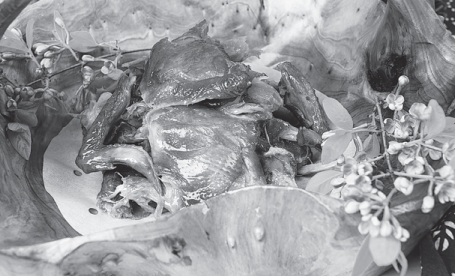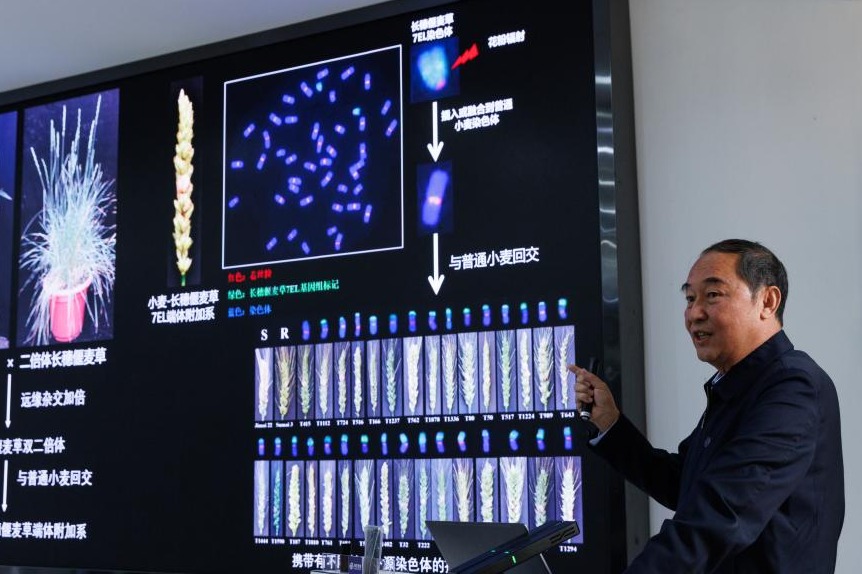Chef finds a recipe for natural success

On Feb 24, the National People's Congress announced a decision to ban the hunting, trade and transportation of wild animals for purposes of consumption. This means China has enforced the comprehensive prohibition on the eating of wild animals on the basis of the Law on the Protection of Wildlife. Before the announcement, Huang Huiming, a famous chef, had already promised he would not serve wild animals and encouraged other chefs to follow his example through his account on Meipian, an information-sharing platform.
According to Huang, who is also the vice-president of the Hunan Cuisine lndustry Association, "to safeguard our health and security, keep ecological balance and biological diversity, I promise not to cook, eat or sell wild animals".
The chef with 39 years of cooking experience also advised other cooks to "treat wild animals kindly" and "refuse to cook and sell them". Moreover, he reminded the public that safe and delicious meat for cooking comes from those animals already tamed by people, and that wild animals are too dangerous to eat.
The cook specializes in Hunan cuisine, also known as Xiang cuisine, one of the top eight Chinese cuisines renowned for its spicy flavors, fresh aromas and striking colors. He has long held his views and was named as a "green cuisine ambassador" by the China Wildlife Conservation Association in 2001.
Born in a remote mountainous area in Chenzhou city, Central China's Hunan province in 1964, Huang took up cooking after graduating from high school and worked in a supply and marketing cooperative where he managed a restaurant in 1981. Since the restaurant was located near the 106 Highway, which links Beijing and Guangdong province, it attracted many customers.
In 1988, Huang opened a restaurant in Chenzhou but the competition was intense and he realized he still had much to learn. He then went to Changsha in 1991 and began to master the craft from Wang Moquan, a top chef of Xiang cuisine.
After years of hard work, Huang started his own business, and opened a base in Changsha to research and develop Xiang recipes, designing dishes for restaurants. He also made sauces and organized activities to boost communication between cooks.
He participated in many competitions and seminars to improve his craft, and won a handful of prizes. In 2005, he won the Golden Chef Award, a major honor that recognizes those who have made immense contributions to cooking. He was also conferred with the honorary title of "a master of Xiang cuisine" by the Hunan Cuisine Industry Association in 2007.
Huang put an emphasis on "green" food and materials. In the 1990s, he and his team sought out folk cuisine and recipes in the remote areas of Hunan, Guangdong and Jiangxi provinces and tried to introduce the local delicacies to the outside world. Consequently, he has developed over 500 dishes on the basis of what he discovered.
For example, Huang once found a delicious fried meat which was a traditional dish for people of the Yao ethnic group living in the Dayu Mountains in the south of China. Huang learned the rigorous cooking techniques from them and developed a fried meat with bamboo which combines the local techniques and his own creativity.
Huang recalls the many difficulties he met at that time. Places he visited were so isolated and only accessible by treacherous roads that he sometimes had to walk for a whole day to reach his destination. He discovered many traditional foods and cooking crafts that had been passed down from one generation to another, and invited local people who mastered the recipes to leave their hometown and work in cities so that their dishes and skill could be appreciated by outsiders.
"Since I come from an isolated mountainous area, I enjoyed natural and fresh food in childhood and know we must go to the source to find delicious food. Since 'green' food and distinctive dishes are often hidden in mountainous areas, I want to introduce them to the public."
But wild animals are not included. Huang says some people mistakenly believe wild animals are "green and natural", some like eating them simply for their novelty value, but these animals are actually an integral part of nature. He believes that killing them may break the natural balance and have disastrous results.
Huang also develops dishes which remind people of their past, like a dish that may evoke memories of something your grandmother once cooked for you, the restaurant that your uncle took you to for dinner, or even a gathering with your close friends.
For example, in Huang's hometown, there is a hot spring that has an average temperature of over 90 C. People used to soak bamboo shoots in the spring for two days before cooking them so that the shoots tasted better with trace elements from the spring. Based on that childhood memory, Huang has developed spring bamboo shoots and he soaks them in spring water just as he saw before, trying to reproduce the taste of his memory.
A customer who visited Huang's base and tasted some of his dishes said: "The dishes evoke memories at first, then I listened to the stories behind them. I'm moved by the emotions of the dishes."
"This cuisine is popular in China, especially among young people, and occupies a large market share. I believe it has great potential to develop further in the future," says Huang.


Today's Top News
- Five continents, five rhythms in 2025
- Lawmakers review draft law to expand childcare services
- China's new-style tea brands find a hot new market in US
- Xi extends congratulations to Chilean president-elect
- Japan urged to stop provocative moves
- Shanxi ends province-wide blanket fireworks ban






























